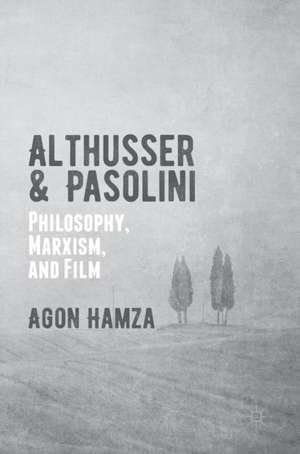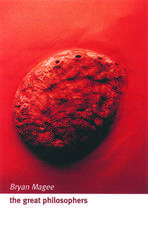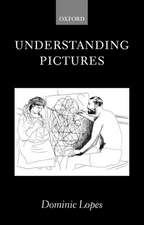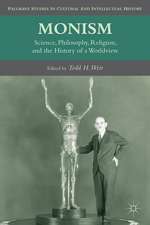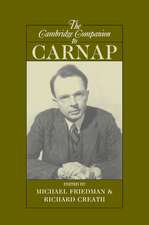Althusser and Pasolini: Philosophy, Marxism, and Film
Autor Agon Hamzaen Limba Engleză Hardback – 2 iun 2016
| Toate formatele și edițiile | Preț | Express |
|---|---|---|
| Paperback (1) | 578.37 lei 6-8 săpt. | |
| Palgrave Macmillan US – 30 mai 2018 | 578.37 lei 6-8 săpt. | |
| Hardback (1) | 584.58 lei 6-8 săpt. | |
| Palgrave Macmillan US – 2 iun 2016 | 584.58 lei 6-8 săpt. |
Preț: 584.58 lei
Preț vechi: 687.74 lei
-15% Nou
Puncte Express: 877
Preț estimativ în valută:
111.88€ • 116.35$ • 93.62£
111.88€ • 116.35$ • 93.62£
Carte tipărită la comandă
Livrare economică 15-29 martie
Preluare comenzi: 021 569.72.76
Specificații
ISBN-13: 9781137566515
ISBN-10: 1137566515
Pagini: 195
Ilustrații: XI, 202 p.
Dimensiuni: 148 x 210 x 17 mm
Greutate: 0.44 kg
Ediția:1st ed. 2016
Editura: Palgrave Macmillan US
Colecția Palgrave Macmillan
Locul publicării:New York, United States
ISBN-10: 1137566515
Pagini: 195
Ilustrații: XI, 202 p.
Dimensiuni: 148 x 210 x 17 mm
Greutate: 0.44 kg
Ediția:1st ed. 2016
Editura: Palgrave Macmillan US
Colecția Palgrave Macmillan
Locul publicării:New York, United States
Cuprins
Introduction: Althusser and Pasolini.- PART I: On Althusser.- 1. Contextualisation.- 2. Periodization.- 3. Taking Sides: Hegel or Spinoza?.- 4. Structural Causality.- 5. Althusser before Althusser: from Christianity to Communism.- 6. Marxists’ Preshistory.- 7. Proletariat of Human Condition Versus the Proletariat of Labor.- 8. Christian Materialism.- 9. Antiphilosophy.- 10. Definition of Ideology.- 11. Epistemological Break.- 12. Interpellation.- 13. State Apparatuses.- 14. Church as an Ideological State Apparatus
15. Althusser’s Politics.- PART II: The Gospel According to Althusser.- 16. Setting the Stage.- 17. Camera as an Ideological Apparatus.- 18. Film as a Commodity.- 19. Representation.- 20. The Christian Reality.- 21. Religious Suspension of the Theological.- 22. Religious-Political.- us Humanity.- 25. The Politics of Religion.- 26. Pasolini’s Political Though.- Conclusion: Marxism and Film.
Notă biografică
Agon Hamza is a PhD candidate in philosophy at the Postgraduate School ZRC SAZU in Ljubljana, Slovenia. He serves as the co-editor-in-chief of the international philosophical journal Crisis and Critique. His latest publications are: Slavoj Žižek and Dialectical Materialism (co-edited with Frank Ruda), Repeating Žižek, and From Myth to Symptom: The Case of Kosovo, co-authored with Slavoj Žižek.
Textul de pe ultima copertă
Agon Hamza offers an in-depth analysis of the main thesis of Louis Althusser’s philosophical enterprise alongside a clear, engaging dissection of Pier Paolo Pasolini’s most important films. There is a philosophical, religious, and political relationship between Althusser’s philosophy and Pier Paolo Pasolini’s films. Hamza teases out the points of contact, placing specific focus on critiques of ideology, religion, ideological state apparatuses, and the class struggle. The discussion, however, does not address Althusser and Pasolini alone. Hamza also draws on Spinoza, Hegel, Marx, and Žižek to complete his study. Pasolini’s films are a treasure-trove of Althusserian thought, and Hamza ably employs Althusserian terms in his reading of the films. Althusser and Pasolini provides a creative reconstruction of Althusserian philosophy, as well as a novel examination of Pasolini’s film from the perspective of the filmmaker’s own thought and Althusser’s theses.
